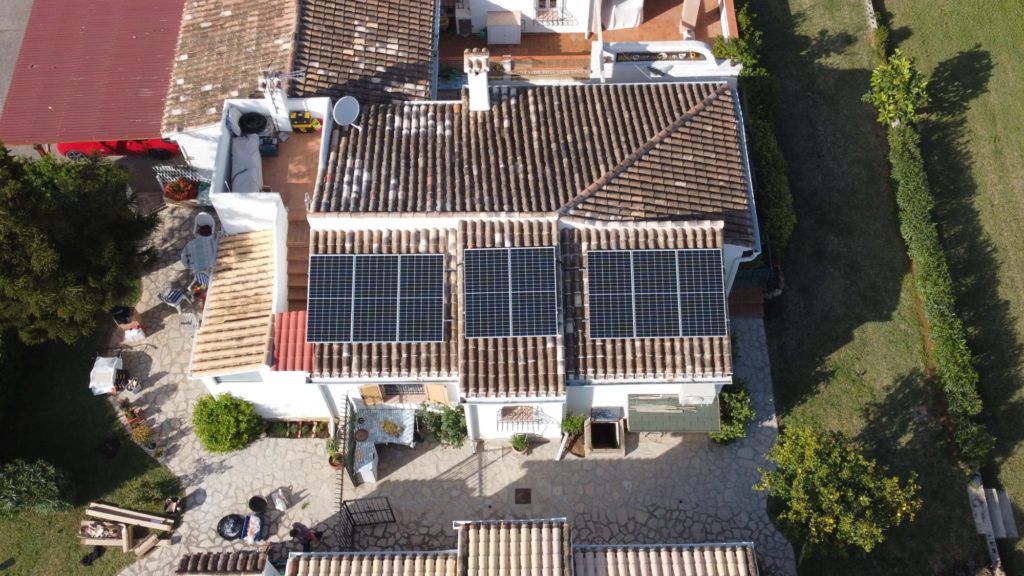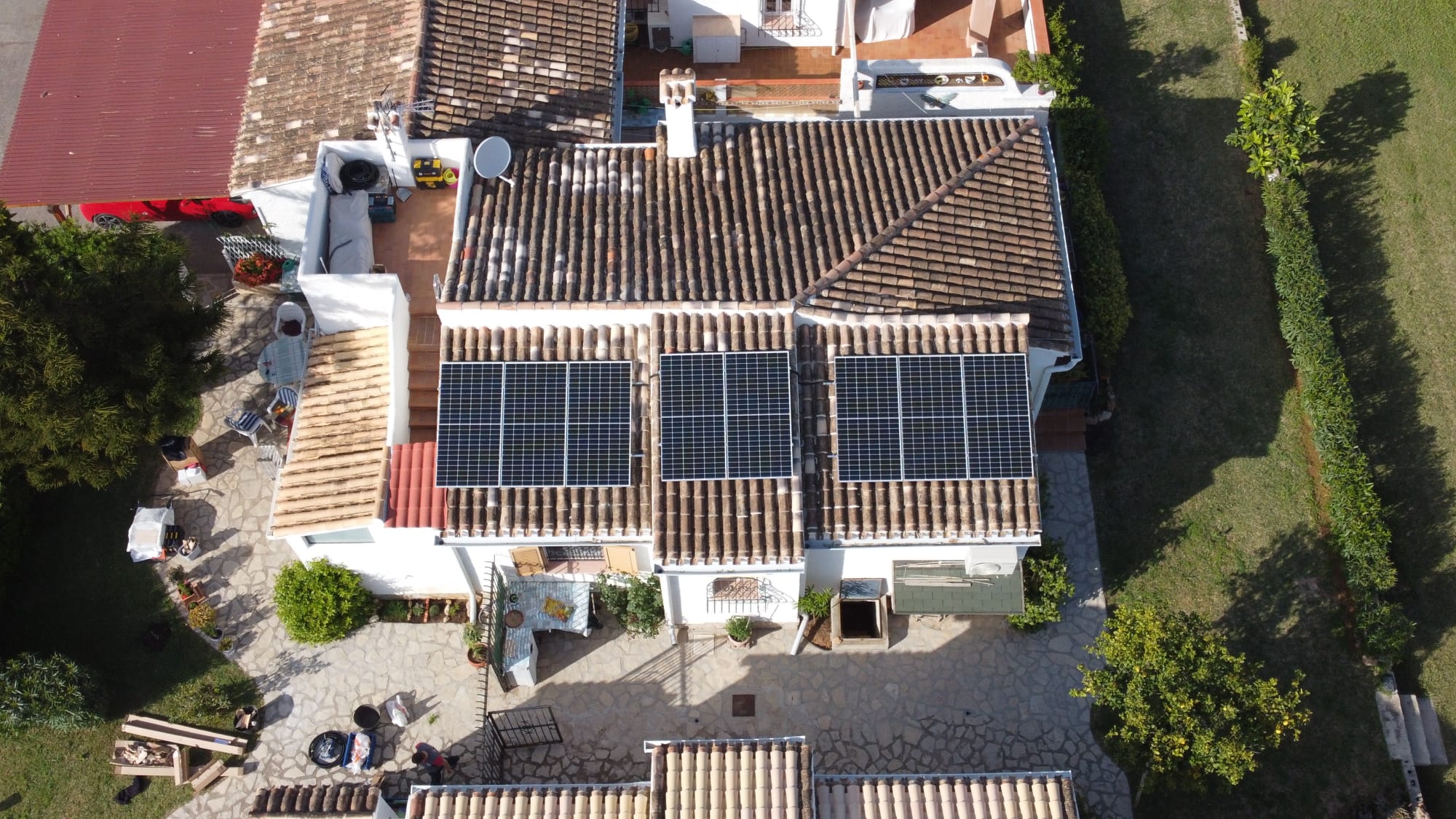The trend of installing solar panels on homes is gaining popularity, driven primarily by the ever-increasing cost of electricity and a growing awareness of environmental protection.
Opting for solar energy in your residence represents a remarkable transformation, giving you the opportunity to efficiently manage your energy consumption, minimize your environmental impact and actively contribute to a greener, more environmentally friendly future.
But let’s take a closer look at what’s involved in installing solar panels for your home.
Read on!
Table of Contents
ToggleReasons to invest in solar panels
The benefits of solar energy are already well known. There are many reasons to invest in solar panels, from economic to ecological ones, including comfort and the feeling of independence when generating your own energy.
Here are some of the main reasons to invest in solar panels.
The environment
Solar energy is already a tangible presence gaining momentum in Spain on a daily basis. This type of renewable energy stands as a concrete and effective option to promote planetary sustainability.
Choosing to invest in solar energy means choosing a greener present and a more sustainable future. It is a decision to follow a path that appreciates and preserves natural resources, marking, undoubtedly, a crucial milestone in the construction of a more promising world for future generations.
Saving on your electricity bill
Installing solar panels in the home brings one of the key benefits: lower electricity bills. In a long-term perspective, solar energy becomes a profitable investment, since solar panels have an estimated life span of about 25 to 30 years.
Grants and subsidies available
The Spanish government is promoting a series of incentives aimed at making the installation of solar panels for photovoltaic solar energy generation easier and cheaper.
Some autonomous communities, such as the Valencian Community, offer subsidies that cover up to 20% of the total cost of installing solar panels. This financial support significantly reduces costs and actively encourages the use of renewable energy sources.
In addition, many municipalities provide support through tax deductions in the Property Tax (IBI).
For those seeking to finance these installations on favorable terms, specific financial products are available. These additional resources support the transition to solar energy, contributing to a more sustainable future and promoting the widespread adoption of renewable energies.

What to consider when installing solar panels for your home
When planning the installation of solar panels on a home, it is essential to consider several crucial factors to ensure the efficiency and effectiveness of the system. These include:
To know the energy consumption generated
First of all, your current energy consumption must be taken into account in order to determine your energy needs with solar panels. The best way to do this is to look at your electricity bills for the last 12 months. These bills will give you an idea of how much electricity you consume each month and how your consumption varies throughout the year. It may be that you use more electricity in summer if you have air conditioning, or that you have more consumption in winter if you have electric heating.
Energy consumption habits
When contemplating the transition to solar, it is crucial to not only consider your current energy consumption, but also to examine your energy use patterns. Do you have higher electricity consumption during the day or at night? Are you often at home during the day or away? Do you use energy-intensive appliances or equipment, such as a swimming pool or home workshop?
The decision to go solar should align with these habits. Understanding whether your energy use is primarily daytime or nighttime, and whether certain appliances contribute significantly to your consumption, will allow you to tailor your solar system to your specific needs.
Local regulations and permits
When green-lighting a home solar system, we face a number of rules and permitting processes at the local level.
In each area, regulations on size, location and layout of solar panels can vary. Some communities limit the height of solar installations, while others prefer that panels not be visible from the street.
To make this journey easier, having an expert in the field, such as Iser Smart Energy, is essential. The Iser Smart Energy team takes care of all the necessary procedures and permits, including the legalization of the installation.
This approach ensures regulatory compliance, opens the door to benefits and rebates available to those who generate energy with solar panels.
Check the available roof area and its orientation
When considering the installation of solar panels on a residence, it is crucial to pay attention to several aspects of the roof, as these play an important role in the efficiency and placement of the panels. Among the elements to note are:
Roof configuration: It is important to evaluate whether the roof is flat or pitched, as well as its specific design, which can range from gable, hipped, multiple small sections or even stepped designs.
Roof material: The type of material the roof is constructed of, whether it is shingles, sheet metal or other, is a determining factor in choosing the appropriate mounting structure for the solar panels.
Influence of external elements: Factors such as the presence of nearby trees or adjacent building structures can generate shadows that affect the efficiency of the solar panels.
Roof orientation: Roof orientation is crucial for optimal solar panel performance. In regions such as Spain, the ideal orientation is generally towards the south, although this may vary depending on the factors mentioned above and the specific characteristics of the site.
Impact on property value
The incorporation of a solar installation represents an investment strategy to generate one’s own electricity and reduce grid costs, in addition, it has a positive influence on the value of the home, providing a significant boost in its price.
Residences that currently have solar panels are marketed at a higher value compared to those without this technology. This phenomenon is due to the fact that, in real estate, solar panels are considered an asset that not only brings profits, but also offers substantial savings in electricity bills for their owners.
This benefit is particularly valuable as it provides stability against variations in electricity costs, which can be subject to fluctuations caused by external factors in a highly globalized world.
At Iser Smart Energy we are experts in the solar energy sector.
En Iser Smart Energy, we have certified and experienced installers. We use only the highest quality technologies and materials to ensure that each installation is safe, efficient and durable. In addition, we take care of all the technical and administrative aspects, obtain the necessary permits, draft the project for its legalization and manage the obtaining of available subsidies and bonuses.


